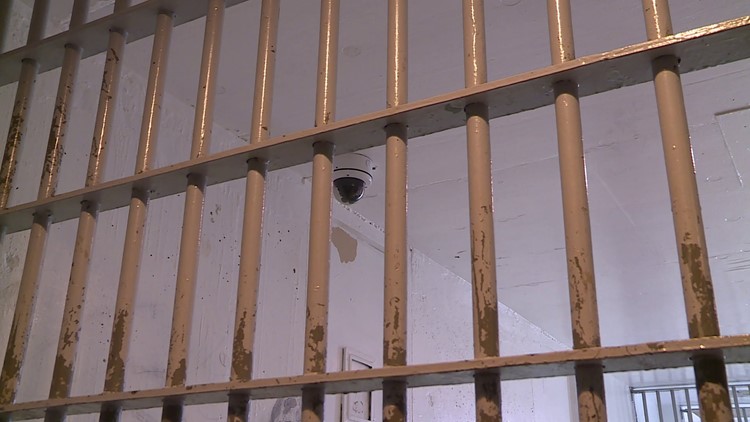SHERWOOD (KFSM) — The Arkansas American Civil Liberties Union filed a civil rights lawsuit on Tuesday (Aug. 23) against the policy of the “modern-day debtors prison” in the city of Sherwood and Pulaski County, spurred in part by the case of an Arkansas cancer patient who was recently sent to jail for owing about $3,000 to the city.
Lee Andrew Robertson, 44, started having financial trouble in 2009, when he underwent his first round of chemotherapy for pancreatic cancer, according to the lawsuit filed in the United States District Court Eastern District of Arkansas. He wrote a total of 11 checks, totaling about $200, that were returned for insufficient funds. The checks, ranging from $5-41, were written in a two-week period to stores around his home.
He worked as a truck driver several years ago, but getting pancreatic cancer put him out of work, according to court documents. He was living in poverty, and was getting by with help of his family and friends.
After his checks bounced, Robertson was charged with 11 hot check misdemeanors and a warrant was issued for his arrest, the documents state. He was eventually taken to the Hot Check Division of the Sherwood District Court and pleaded guilty via a video conference from his jail cell, but he was not notified of his right to counsel and did not waive it.
He was sentenced to pay restitution, fines and court costs totaling $2,407.01, the documents state. When he could’t make the monthly payments due to his illness, he was issued further warrants and subsequently charged with failure to pay, failure to appear and failure to comply with probation.
The documents state that each of Robertson’s attempts to explain his inability to pay were disregarded by the judge, who was also named as a defendant in the ACLU lawsuit.
Six years after writing the bounced checks, Robertson has been arrested seven times, has spent several weeks in jail, and still owes more than $2,600 in court costs, fines, and fees. He was most recently jailed for owing $3,054 to Sherwood, and will likely be jailed in the future.
The ACLU lawsuit alleges that Sherwood and Pulaski County violated Robertson’s rights, as well as three others, when they were jailed for their inability to pay their debts. An ACLU press release states that jailing people for their inability to pay, essentially becoming a modern day debtor’s prison, violates a law forbidding officials to do so.
Additionally, the lawsuit alleges that like Robertson, defendants are required to waive their right to counsel — essentially denying the option of an attorney — before entering the courtroom, the release states. The hot check defendants are presented with a “waiver of counsel” form while waiting to go to court, and are told they are required to fill them out before they are allowed in the courtroom, the document states.
However, the Arkansas Constitution guarantees the right to legal counsel, and waiving the right to an attorney must be done voluntarily and with full knowledge of what the person is doing.
The lawsuit also claims that officers knock on doors, threatening to arrest those who can’t pay a small fee, usually between $50-100, for a new court date, the release states. Additionally, bailiffs tell defendants that the court is closed and won’t allow the defendant’s family or friends inside.
“Across the country, the cost of debtors’ prisons in human lives and public resources is enormous,” said ACLU of Arkansas Executive Director Rita Sklar in the press release. “When the criminal justice system serves as unscrupulous debt collectors for the public and private sector, without regard to due process, the government is not only violating people’s rights, it is facilitating the never-ending cycle of poverty: threatening the poor with incarceration for failure to pay bills they can’t pay, keeping them from jobs that may help them pay their bills, and stacking up fines that dig the poor into an even deeper hole.”



